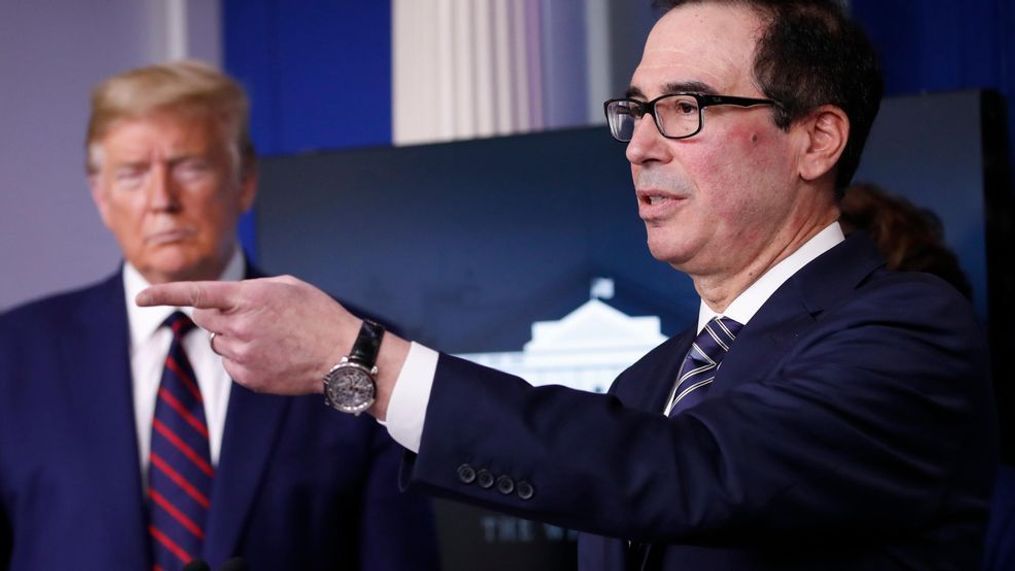Treasury Department works to fix glitches in small business loan program

WASHINGTON (SBG) -- As of Wednesday afternoon, nearly a third of the money allocated for small business loans under the CARES Act was spent. Now, the Treasury Department is asking Congress for more funding.
“This is an unprecedented economic challenge that the country is facing right now," said Assistant Secretary of the Treasury for Public Affairs Monica Crowley.
The $350 billion Paycheck Protection Program (PPP) started taking applications for small business loans on Friday. The treasury is asking for an additional $251 billion.
A vote in the Senate to pass additional funding could happen as early as Thursday, according to Senate Majority Leader Mitch McConnell.
“We are anticipating huge bipartisan support for the additional funding on a vote in Congress on Thursday," said Crowley.
Millions of small business owners are applying for financial help through a new federal loan program, but many are running into problems. There are widespread reports of technical glitches, banks not taking on new customers and banks not understanding the guidelines of the program.
White House Economic Adviser Larry Kudlow said the program "got off to a bad start last Friday" -- but Crowley said she disagrees.
"I think again, with a project of this kind of magnitude, when you’re dealing with 30 million small businesses across America, of course issues are going to arise," said Crowley, "but I think the early issues have been largely smoothed out.”
Crowley said some banks have had some issues but she said they will all be online by Wednesday or Thursday at the latest.
“Once the big banks get online, you will see the volume and the magnitude of the loans that are being approved and the amount of money going out to support small businesses grow exponentially," said Crowley.
Instead of blaming the rocky start on the banks, some, like Jeff Hauser at the Center for Economic and Policy Research (CEPR), argue the program itself is flawed.
“Unfortunately, the way this system was set up was a first come-first serve basis and so your largest small businesses have a leg up in the beginning," said Hauser.
Hauser is the executive director for the CEPR's Revolving Door Project, which scrutinizes executive branch appointees. He said in addition to more funding, the PPP needs to do more to give business owners confidence they will get the help they need.
“Right now, there’s no guarantee, and I don’t know that another $250 billion is going to be sufficient to give that sort of confidence to small business owners, which will in fact allow them to protect the paychecks of their workers, which is the goal of this project," said Hauser.
Hauser said the Small Business Administration has been set up to fail after a series of budget cuts.
“The SBA is not really set up to deliver the quantity of loans with the speed that we need to keep our small businesses open and operating," said Hauser.“Each day there are difficult decisions made about whether or not to furlough employees or to explicitly lay them off, and that decision-making would be a lot better if they knew there was so much money authorized that they would get money if they deserved it.”
